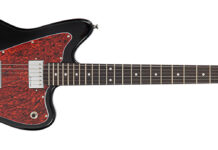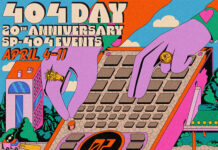Brian May Discusses Queen's Greatest Moments
In this 2011 interview, Brian May looks back on Queen’s greatest moments.
“Sorry, my head takes a little while to get into gear,” says Brian May with a little laugh as he begins to mull over the history of Queen. The 63-year-old guitarist speaks gently, endeavoring to answer questions as fully as he can.
May’s academic air is understandable. As a younger man he attended London’s illustrious Imperial College until he abandoned his studies and a promising future in astrophysics to fully dedicate himself to Queen. The band’s estimated worldwide album sales vary anywhere from 150 to 300 million.
Whatever the exact figure, it was certainly a smart career move for the budding cosmologist.
In 1971, bassist John Deacon joined Queen, completing the lineup of May, drummer Roger Taylor and singer Freddie Mercury. Over the next two decades they would become the complete stadium rock act. Mercury expertly worked massive crowds backed by a concrete rhythm section that mixed flamboyance (Taylor) and willful anonymity (Deacon).
May, instantly recognizable either by the sight of his trademark tower of curly hair or the unique tone of his homemade Red Special guitar, would mutter quietly to himself as he strove to perfectly deliver some of rock’s most memorable riffs.
Grandiosity in all things applied very much to Queen’s parties. These notoriously depraved celebrations were typically staffed by half-naked girls, though disappointingly a well-worn anecdote involving dwarves with bowls of cocaine on their heads is entirely apocryphal. “I loved the social side of it and there was a lot of fun in doing things that no one had done before,” May says.
“But there was a side of me that kept to myself, I suppose, and was much more private. Looking back on it, I think perhaps I was a little too much of an island, but on the other hand perhaps it kept me sane.”
In 1991, at the age of 45, Freddie Mercury passed away due to AIDS-related bronchial pneumonia. Six years later John Deacon withdrew from public life, leaving May and Taylor—musical comrades since 1968, when they first played together in a group called Smile—to curate Queen’s legacy.
This year marks the group’s 40th anniversary, and in celebration, Queen’s 15 studio albums are being released in remastered deluxe editions. “I’m quite excited, actually,” says May. “They’re a really lovely bit of work, I think. There are lots of little bits of rescue that have been done to bring these albums closer to the original vinyl experience. You know, when you first opened your LP and it had that particular smell. Unfortunately we can’t quite do the smell yet, but we’re trying to get as close as possible to that sound and that feel. It’s a fascinating project.”
What were your impressions of Freddie Mercury before he joined Queen?
An interesting and flamboyant character who seemed to be very confident, but it was soon apparent that he was very shy underneath all that stuff. Yeah, he was an unknown. Full of enthusiasm, full of energy and ideas. We had no idea if he could sing or not, really. When we actually did see him sing with his old band, I don’t think we felt that good about it because he was very over the top. Of course, that all changed very quickly when Freddie got into the studio and started to hear himself and fashion himself according to his desires. He was very astute at finding the best in himself.
Who did you have most in common with when Queen first got together?
MAY That’s complicated. Once we were all together we had quite a complex, sort of multiway interaction. That’s why it worked, really. I was very close to Roger in some ways because we’d already been in a band together. We are—and we were—kind of brothers. We were so close in our aspirations and the way we looked at music, but of course so distant in so many other ways. So like any pair of brothers we sort of loved and hated each other all along the line.
What was your relationship with Freddie like once he became a band member?
In a way, I was very close to Freddie, particularly in the songwriting area. In the beginning, it was only he and I that were writing the material, pretty much. We learned to interact in a very productive way without treading on each other’s toes. At its best it was a wonderful relationship, I must say.
Some of my best times were producing a vocal out of Freddie, sort of coaxing him in various directions. A lot of the other best moments were Freddie doing the same for me the other way round, him saying, “Brian, why don’t you try this?” while I was doing the guitar solo. He loved what I did, which was very encouraging for me. He kind of saw me as his Jimi Hendrix, I think, which was very flattering for me. Most of my best guitar work was done on Freddie’s material because it was so inspiring. When it came to my own material, I was more concerned with the song.
When you learned that Freddie was dying did you want to continue recording?
Yeah. He loved recording, he loved being in the studio environment, and I think right up to the end that was his greatest escape. So it was his wish that we recorded right up to the very, very last moment. He was singing vocals when he couldn’t even stand. He’d prop himself up against the desk, knock a couple of vodkas down and go for it.
The very last time we ever did that, me and him, was singing “Mother Love,” which is one of my favorite tracks on Made in Heaven. He never actually finished that. He said, “Oh, Brian, I can’t do any more. I’m dying here.” [laughs] It’s incredible, he never seemed to let it get him down. He was always full of humor and enthusiasm. He would make jokes about it, really.
Were those final sessions upsetting?
At the time, strangely enough, we developed such a great closeness as a band that they were quite joyful times. There was this cloud hanging over, but the cloud was outside the studio, it wasn’t inside. I have really great memories of those times. I think that we opened up to each other in a way that we hadn’t been able to before. For the first time we were actually writing songs absolutely as partnerships so, no…you know, the thing is there’s always a big element of disbelief. Y
es, we knew the prognosis and we’d seen what happened to people with this horrible disease, but I don’t think we quite believed that it could happen to Freddie. We thought, No, something will happen, you know, somebody’s going to find a cure. He’s Freddie, after all. He’s invincible. So when the news finally came it was like a bolt from the blue.
Did you get a chance to say goodbye?
[sighs] That’s a hard question to answer. We were with him a lot in the final days, but it wasn’t a question of saying goodbye; it was a question of just sharing a moment. I remember a particular occasion when we were talking about his garden, because he was lying in bed and he couldn’t see out into his garden very well from where he was. We were talking about his plants, which he loved.
Actually, Anita [May’s wife] and I were there. He said, “Guys, don’t feel like you have to talk to me. Just you being here is what’s important, and I’m enjoying that. So don’t feel like you have to entertain me.” So I think, in a way, that was him—amazingly—finding acceptance of the way things were. So, no, the word “goodbye” didn’t happen but we definitely reached a very peaceful place.
Did you have any idea that your 1986 Knebworth show would be the last time that Queen played live together?
No. Freddie said something like, “Oh, I can’t fucking do this anymore, my whole body’s wracked with pain!” But he normally said things like that at the end of a tour, so I don’t think we took it seriously, really.
Did “Bohemian Rhapsody” strike you as a peculiar song when Freddie first suggested it to you?
No, I don’t think so. You’ve got to bear in mind that we’d already made “My Fairy King” on the first album and we’d done “The March of the Black Queen” on the second album, so we were well in tune with Freddie’s excursions into strange areas, and that was something that we really enjoyed.
I personally loved it when he’d come in with something off the wall, because there would always be something interesting for me to do on it. He’d be playing in Eb, which is always difficult for a guitar player, or F# or whatever, and I would enjoy the challenge of finding things that sounded good on the guitar that went with his piano playing. So I was intrigued. I thought, This is going to be a great thing to work on.
What’s your favorite riff to play?
Probably “Tie Your Mother Down.” People jump up when they hear it, which is a good feeling.
Being so highly educated, did you find that being in a band provided you with adequate intellectual stimulation?
That’s an interesting question. I suppose we were quite an intellectual group, so we would always have lots of discussions about things that weren’t music. The music itself is very challenging, so I’ve never really felt the lack of stimulation. I love to be creating, I love to be making things and solving problems, I suppose, and when I’m not, then I’m not an incredibly good person to be around. If I’m not busy then I think I would be disaster. That’s just the way things are.
Innuendo, the last album that you recorded with Freddie, was released the same year as Nirvana’s Nevermind [1991]. Do you think that, had Freddie lived, Queen could have continued on the same level given the way that rock was heading in the Nineties?
It’s hard to say really. I’m sure we would have continued as a band. The fact that it continued without us being a band is incredible, so I suppose the answer would be yes. I mean, we seem to be as big as we ever were in much of the world. We revisited South America with Paul Rodgers a while ago and it was almost as big as it was in the old days. We were playing stadiums again. So yes, I think we would have still been doing what we did.
Do you ever think about retiring?
No. I’m not a person for sitting on beaches. What would I do?
Source: www.guitarworld.com











